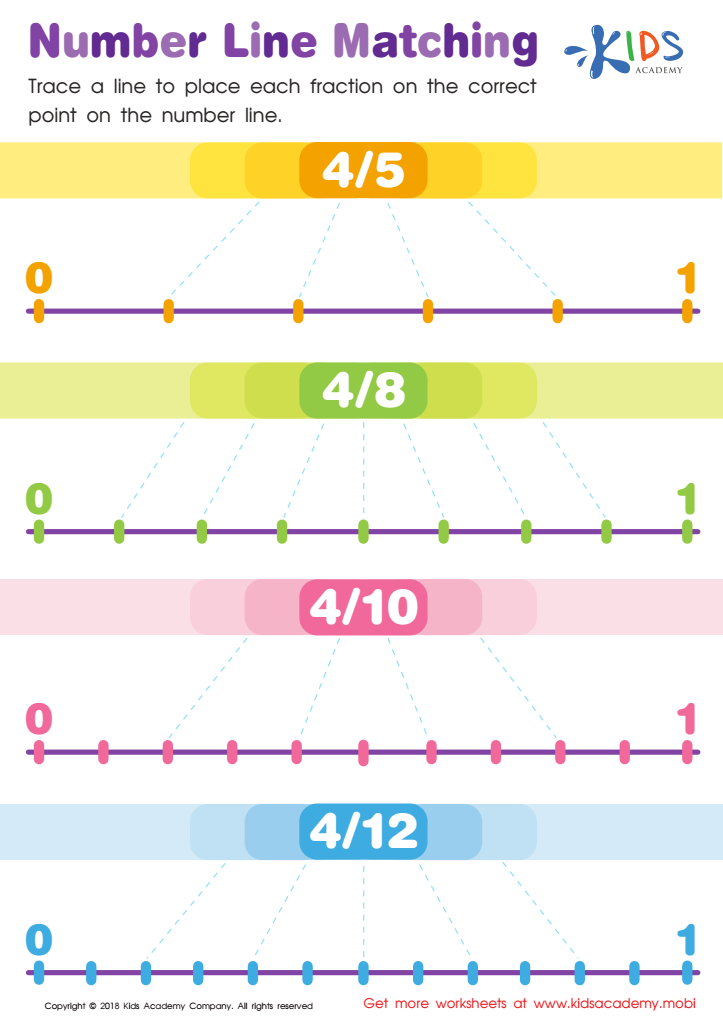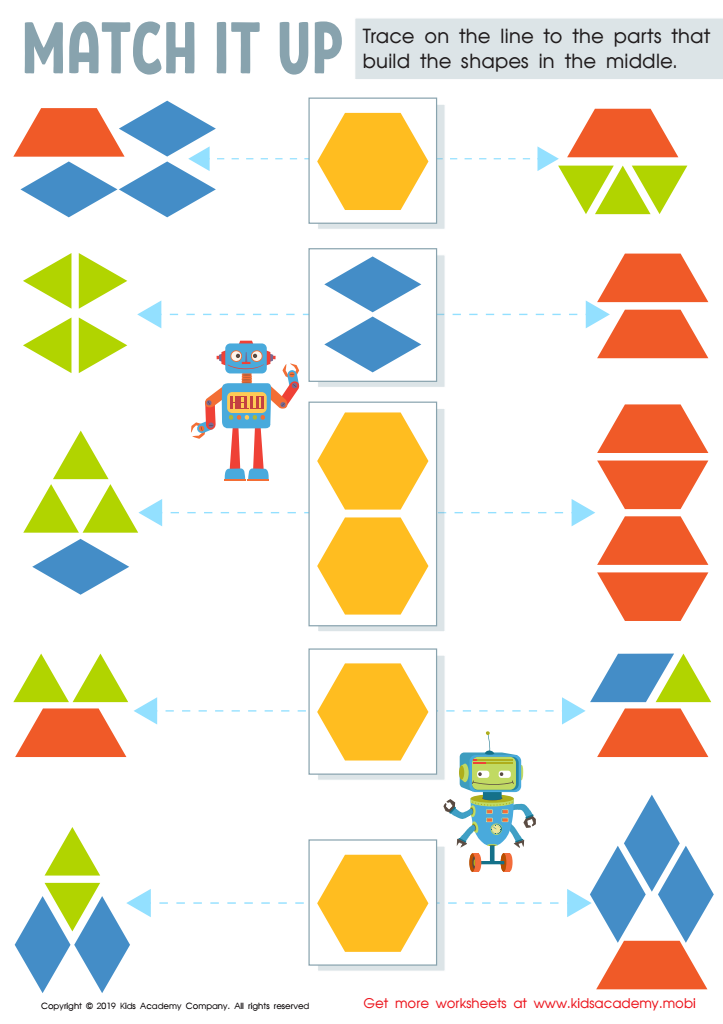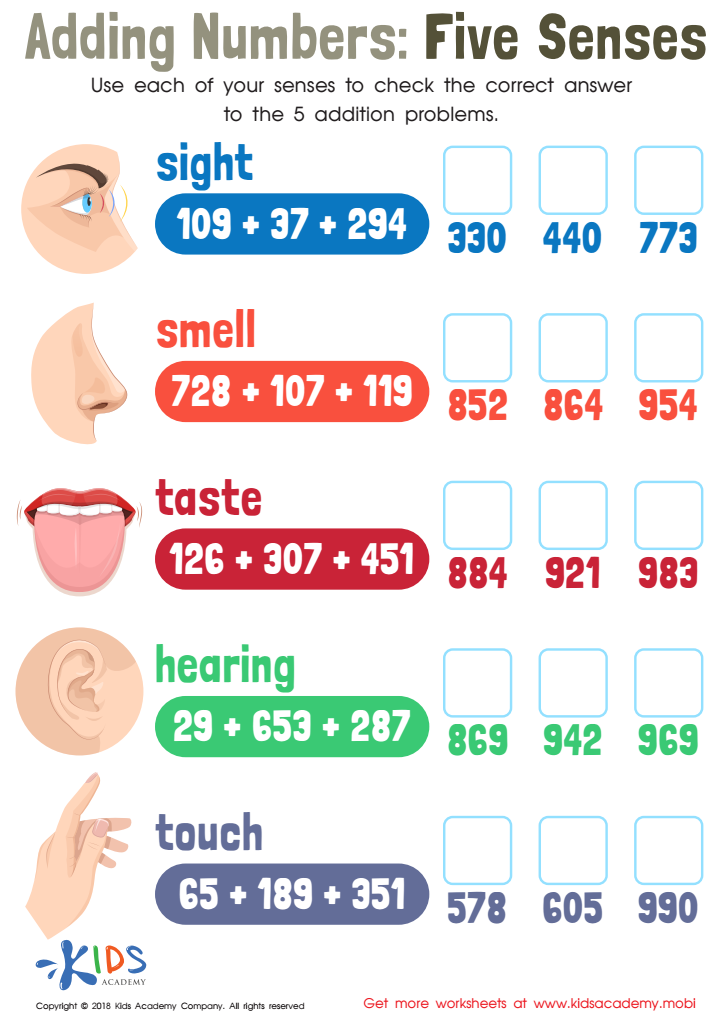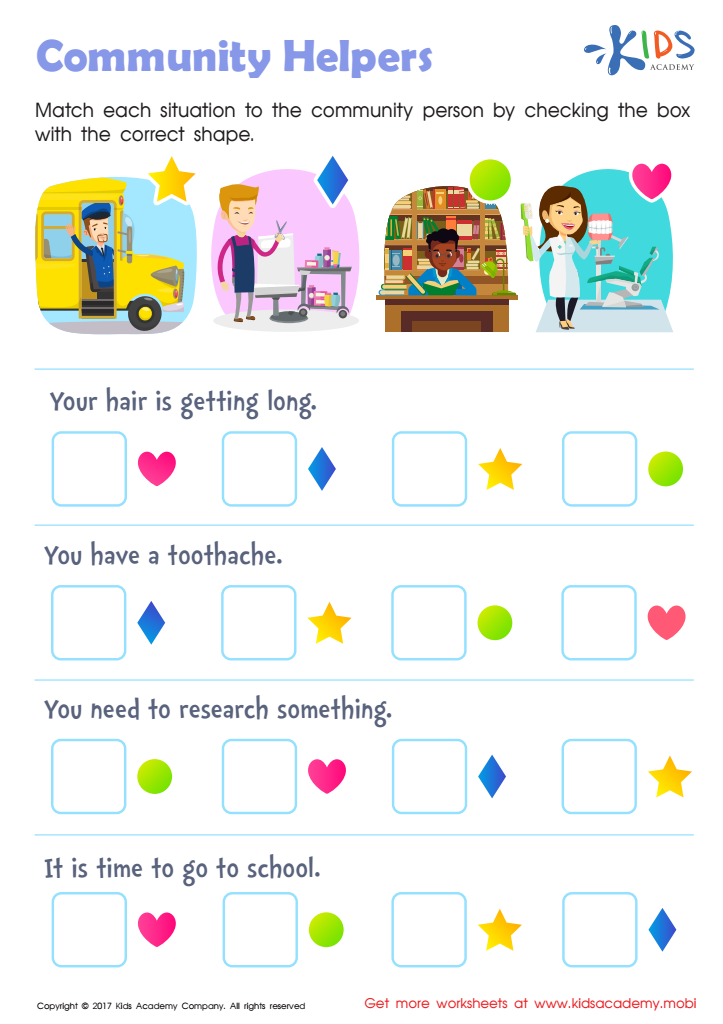Associative learning Worksheets for Ages 7-9
4 filtered results
-
From - To
Boost your child's cognitive development with our Associative Learning Worksheets designed for ages 7-9. These fun, engaging worksheets foster critical thinking and help children establish meaningful connections between concepts, enhancing their memory and understanding. Our expertly-crafted materials cover a diverse range of subjects, including math, science, and language arts, ensuring a well-rounded learning experience. Let your child explore, practice, and master new ideas through context-based activities that make learning both enjoyable and fruitful. Ideal for both classroom use and homeschooling, these worksheets are your perfect resource for nurturing young minds. Give your child the tools to succeed today!


Number Line Matching Worksheet


Match It up Worksheet


Adding Numbers: Five Senses Worksheet
Associative learning is critical for children aged 7-9 because it directly impacts their academic and social development. At this age, kids are keen explorers, and associating new information with existing knowledge helps reinforce their learning. For instance, when a child links the sound of a word with its meaning or a math problem with a real-world example, the information becomes more memorable and meaningful.
From an academic perspective, associative learning enhances cognitive connections. This means children can better remember and apply what they’ve learned in varied contexts, fostering a deeper understanding of school subjects. It encourages critical thinking and problem-solving, as students learn to associate different pieces of information logically.
Socially, associative learning is equally significant. Kids start associating facial expressions with emotions or social cues with expected behaviors, aiding in the development of communication skills, empathy, and interpersonal relationships. This helps them navigate social interactions more effectively.
Moreover, encouraging associative learning can make learning more enjoyable. Engaging activities like storytelling, games, and hands-on experiments can keep young minds curious and motivated, thereby fostering a lifelong love for learning. For teachers and parents, emphasizing this type of learning cultivates an enriching environment that supports a well-rounded development, preparing children for future challenges.
 Assign to My Students
Assign to My Students






















